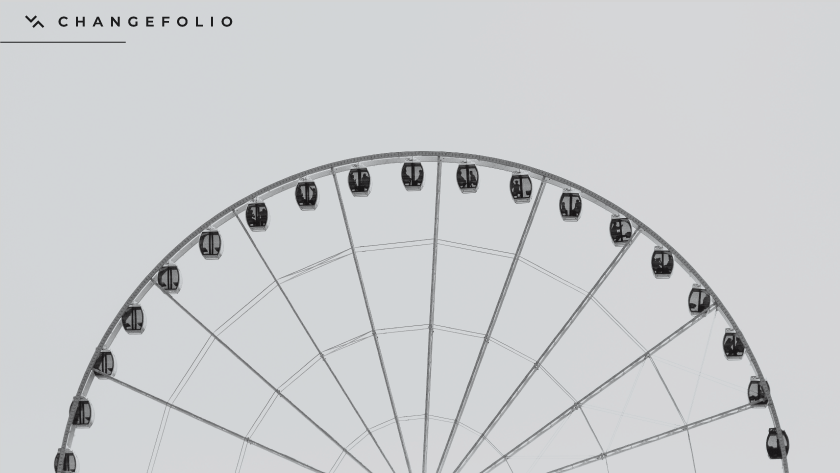
Change is inevitable. If you don’t agree, do these two things:
Write down today’s date and approximate where you were this time last year. What has changed?
Write down today’s date and put it on your fridge; the following year, look at this date and see the changes that have occurred.
Change is tangible; it is also intangible. Intangible change is, for example, a mindset change. A positive mindset is rewarding. A positive mindset brings an objective reality. This objective reality brings opportunity. This opportunity reinforces a positive mindset change – and so the wonderful cycle of change begins.
Change is changing. Change is forcing us to change at a quicker, and more intelligent pace. Change is stretching us and testing us and pushing us to look at things differently. Change is finally being recognised for what it is – a necessary option to support (not enforce) creativity.
At the time of writing this article, a large part of the world is in ‘lock down’ due to COVID-19 . At the time of writing this article, the world economy has collapsed. At the time of writing this article, the world is operating in the unknown. Enter changing change…
Change Management is no longer about ‘just’ supporting new initiatives to adopt and adapt to new environments. Change Management is now about assisting, driving and even inspiring creativity.
Because we are living in the unknown, and possibly fear of what COVID-19 will do to our companies, creativity, in my lifetime, has never been as prominent, and necessary. This is one of those times where we think, ‘thank goodness we can finally operate in a new normal’. Long gone are the days of, ‘this is how we have always done it’. We eagerly invite the question, ‘how can we do it differently?’
So how do we prepare for creativity, and is it too late to be in a preparatory stage? Now is the time when we can actually use the words ‘I told you so’. We should have been prepared. Why? Because history repeats itself. Always! History allows us to use predictive analysis. We have been here before, just not in some of our lifetimes.
We need to learn that hindsight does not exist and, we should believe that change is changing. Let’s not punish ourselves and instead, agree to the following lessons:
Always be ready
If you are not ready, refer to lesson 1
This doesn’t help us for the ‘here and now’ so, during times like this, the following tips should apply:
Look around your workforce – if the average tenure is 5 years, it’s time to bring in a consultant to work with you on driving a creative mindset because working memory has started sinking into the workforce; we are now in creative solutioning to keep our businesses thriving.
Accept that your budget, as it stands today, will be used differently – long gone are the days of travelling for team builds; this money must be used to incentivise creativity (note that I haven’t used the word ‘innovation’).
Mandate your leadership team to create a book club – host a monthly book club session where your leadership team shares one business book that they have read and, mandate an improvement project to be born from this reading. Monthly. With measurements.
Go back to history, in general – during times of hardship, when was creativity at its peak, what was invented, what was reinvented, and what are the lessons that can be extrapolated?
Mandate every Executive Leader to have an Executive Coach – there is a Latin phrase that I use regularly – ‘tempora mutantur et nos mutamur in illis’ – times are changing, and we are changing with them.
Make some tough calls – now is the time to implement an updated version of your organisation – a holacratic one if possible – after all, we need all the creativity that we can get our hands onto.
Get your project team equipped with these recommendations – if you don’t have a project department, get one and make sure they operate in the ‘to be’ state.
Update your performance metrics – if you are still using performance reviews, at least 30% of key performance indicators should represent creativity objectives and behavioural objectives.
Tempora mutantur et nois mutamur in illis.
Look to your future self and wonder what would have shifted in this last year.
Were you accurate?
Did you use your creativity?